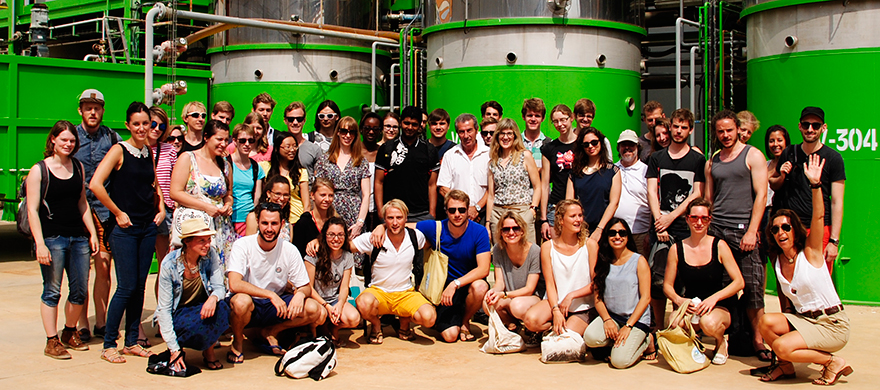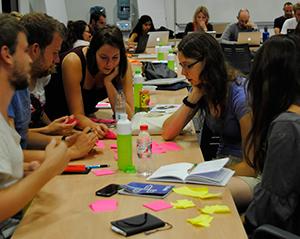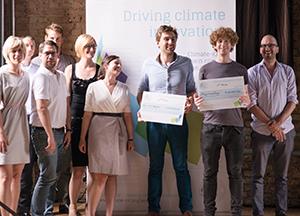Week 4: 200 additional students embark on the #Journey2014 climate innovation summer school

In a number of locations across Germany and the UK, around 200 additional students embark on the Climate-KIC’s #Journey2014 summer school this week. Time for us to look back at the final week in Valencia and Berlin for the first two student groups.
This year’s programme includes 18 locations across Europe and is Climate-KIC’s largest climate innovation summer school to date. Students journey across three countries in six separate groups for a total of five weeks, gaining insight and experience around climate science and business skills from a selection of Europe’s best universities and most innovative businesses.
The students learn, prepare and travel between July and September, culminating in a challenge where start-up teams formed by the students present detailed business plans to a jury consisting of venture capitalists, start-up entrepreneurs and scientists.
Finals
The first two groups – totalling 100 students – have now finished their fourth week, and will come together in Italy’s Emilia Romagna region for what will be the last week of their journey with pitching finals taking place in Bologna on 6 and 7 August.
In total, 300 students travel across Europe between July and early September, culminating in a challenge where start-up teams formed by the students present detailed business plans to a jury consisting of venture capitalists, start-up entrepreneurs and scientists.
Valencia and Berlin
The summer school students continued their journeys in Germany and Spain last week, enjoying their last week’s in Valencia and Berlin before heading to the finals in Bologna.
In Berlin, the Journey students began their week at TU Berlin learning about the importance of communications and branding, as well as pitch training. The students ended their week with a trip to EUREF (EURopean Energy Forum) Campus to watch the finals of the Climate-KIC Germany Venture Competition. The Venture Competition allows the Journey students to get greats insight on how to refine their business ideas and also learned some interesting pitch tactics.
The group in Valencia spent time visiting the IMECAL factory in Valencia on Tuesday, where they learnt about the pilot plant and its bioethanol generation. Over the course of the rest of the week, they visited the University of Valencia’s Tarongers campus, where they enjoyed workshops in financing a start-up, marketing and communications and of course valuable time to work on their cleantech business ideas.
Blogging students
Summer school students Anna Klobut – student studying Transportation and Environmental Engineering at Aalto University in Finland, and Anastasia Nikologianni – a PhD student studying at Birmingham University – have written about their #Journey2014 experiences so far on the Climate-KIC Blog last week.
“Here in Valencia our programme consists of lectures from business, and entrepreneurship, to marketing, and finance. My background is in engineering and I haven’t taken any business courses before, so there is a lot of new information to process each day,” says Ana.
“One of the key things that I have learned so far is that if you are planning to found a start-up and become an entrepreneur, the most important thing to find out is if there is a market for your product. A start-up can only be successful if it has the right market and people want to buy your product. It doesn’t matter if you have a brilliant product, if no one buys it , you have no business. It’s as simple as that.”
Anastasia, a Greek PhD student studying at Birmingham University, writes about the challenges they face when coming up with a business idea.
“We are now at the stage where ideas have to face the reality. Spending the last few days doing market research at the streets of Berlin, contacting companies, producing questionnaires and trying to understand if our business plan will be a success or not, made us realise that research, time planning, accuracy and hard work is needed, ” she writes.
“Although, the process in not easy and the fact that we are all coming through difficulties during the day, the support from the group is tremendous. Working together with our coaches, but also using our own expertise we manage to evaluate our projects and be critical about their future.”
Social media
The online activity continued last week in Valencia and Berlin:




 Share this page
Share this page


